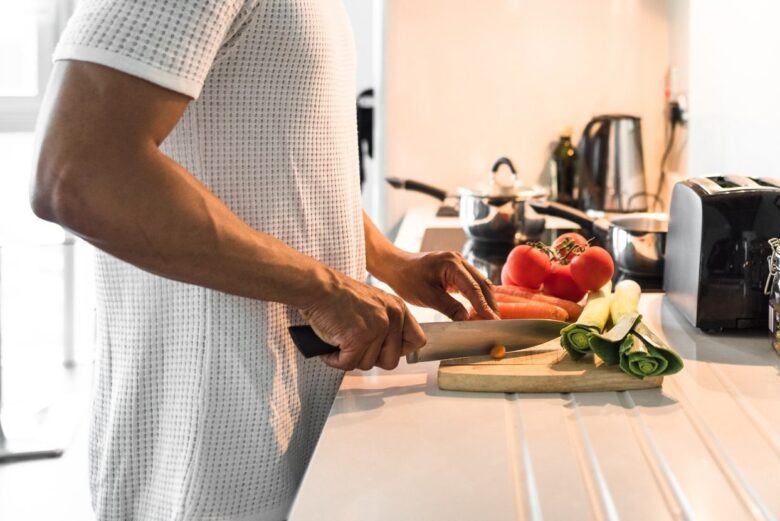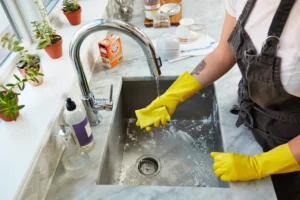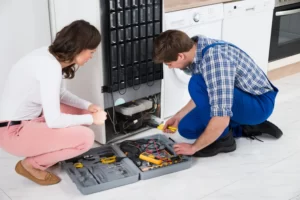A clean, safe kitchen is the heart of a healthy home. This is where we prepare meals for our loved ones and create memories around food. However, the kitchen can also be a place where accidents can happen if proper safety measures are not taken. In this article, we will discuss some basic tips to keep your kitchen clean and safe, which will not only keep your family healthy but also help you get Google Adsense approval for your website.
1. Regular cleaning
One of the most important aspects of kitchen safety is regular cleaning. A clean kitchen is less likely to contain harmful bacteria and germs that can cause foodborne illness. Make sure you clean your countertops, sink and appliances every day. Pay special attention to areas where raw meat and vegetables are prepared, as these can be breeding grounds for bacteria.
2. Good food storage
To keep your kitchen safe, it is crucial that you store food properly. Use airtight containers for leftovers and perishable items. Label and date containers to ensure you use them before they expire. Keep your refrigerator at a suitable temperature (below 4°C) to prevent bacterial growth in your food.
3. Fire safety
Kitchen fires are a common household hazard. To prevent fire, never leave cooking unattended, especially when using the stove or oven. Keep flammable items such as dish towels and paper towels away from the stove. Install smoke detectors in the kitchen and test them regularly to ensure they are working properly.
4. Handle knives and sharp objects
Proper handling of knives and other sharp objects is essential for safety in the kitchen. Always use a cutting board to cut food and avoid cutting on the countertop as this can damage the surface and pose a safety hazard. Keep your knives sharp, because dull knives are more dangerous than sharp knives.
5. Child protection
If you have young children, child safety measures in the kitchen are critical. Keep cleaning products and sharp objects out of reach, use safety latches on cabinets and drawers, and install stove knob covers to prevent accidental burns or fire.
6. Regular maintenance of the equipment
Maintain and inspect kitchen appliances regularly to ensure they are in good working order. Defective devices can cause fire or accidents. Remove grease and food residue from stoves, ovens and microwaves to prevent possible fires.
7. Avoid cross-contamination
Cross-contamination can lead to foodborne illness. Store raw meat and vegetables on separate cutting boards and wash your hands thoroughly after handling raw meat. Disinfect surfaces and utensils that come into contact with raw meat to prevent the spread of harmful bacteria.
8. Organize your kitchen
An orderly kitchen is a safe kitchen. Keep pots, pans and utensils within reach so you don’t have to stretch or climb to reach them. Store heavy items on lower shelves to prevent them from falling and causing injury.
9. Develop yourself
Stay up to date on food safety guidelines and best practices. Knowledge is the best way to prevent foodborne illness and kitchen accidents. If necessary, take a food safety course and stay up to date on the latest safety recommendations.
10. Discard expired items regularly
Expired food can be a breeding ground for pests and bacteria. Regularly check pantries, refrigerators and freezers for expired items and throw them away immediately.
In short, a clean, safe kitchen is essential to your family’s well-being. By following these tips, you can not only keep your loved ones safe but also create content that will get your website approved by Google Adsense. Remember, safety in the kitchen comes first and the rewards follow.



